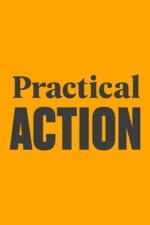
Is small still beautiful? We think it is. In an increasingly divided and fragile world, Practical Action aims to demonstrate and advocate the sustainable use of technology to reduce poverty in developing countries.
Practical Action was founded in 1966, as ITDG (the Intermediate Technology Development Group), by the radical economist Dr EF Schumacher to prove that his philosophy of 'Small is Beautiful' could bring real and sustainable improvements to people's lives.
With our commitment to poverty reduction, environmental conservation and technology choice we think Practical Action is uniquely placed to contribute to a world free of poverty.
Practical Action has a unique approach to development – we don't start with technology, but with people. The tools may be simple or sophisticated – but to provide long-term, appropriate and practical answers, they must be firmly in the hands of local people: people who shape technology and control it for themselves.
Using technology to change the world[edit | edit source]
Practical Action believes that the right idea – however small – can change lives. It can create jobs, improve health and livelihoods, and help people have better lives. That's why, since 1966, we've been working with poor people to develop the skills and technology that will enable them to build a better future.
Practical Action's approach really is unique – and we focus our work on four key areas:
- We help reduce the vulnerability of poor people affected by natural disasters, conflict and environmental degradation – events which, sadly, are increasing.
- We help poor people to make a better living – by enabling producers to improve their production, processing and marketing.
- We help poor communities gain access to basic services – like safe, clean water, food, housing and electricity.
- We help poor communities respond to the challenges of new technologies, helping them to access simple effective technologies that can change lives forever.
In everything we do, Practical Action is about bringing positive, lasting change to people's lives.
Read more about how we aim to change lives in Technology Challenging Poverty, or read about our most recent work in our annual highlights.
License[edit | edit source]
The Practical Action conditions of use page licenses their content is licensed under the GFDL (the Gnu free documentation license). This is a 'copyleft' license which lets anyone copy and reuse the content provided the revised content is also licensed under the same license.
This is the license which was used by Wikipedia and Appropedia until 2009 when they changed to the CC-BY-SA license. Under the terms of version 1.3 of the GFDL any Practical Action content which was added to Appropedia before November 1, 2008 was relicensed under the CC-BY-SA license with the rest of the Appropedia.[1]
Technical briefs[edit | edit source]
Practical Action Technical Briefs are a form of technical information for development from the pioneering appropriate technology organization, Practical Action in the UK.
These cover a wide range of information, often relating to village-level industry, commerce and agriculture. These were ported to Appropedia to enable wider sharing.
- Practical Action/porting - Where progress was tracked on the porting of numerous technical briefs originally published by Practical Action
External links[edit | edit source]
- Practical Action Homepage
- Practical Answers - Practical Action technical brief homepage

